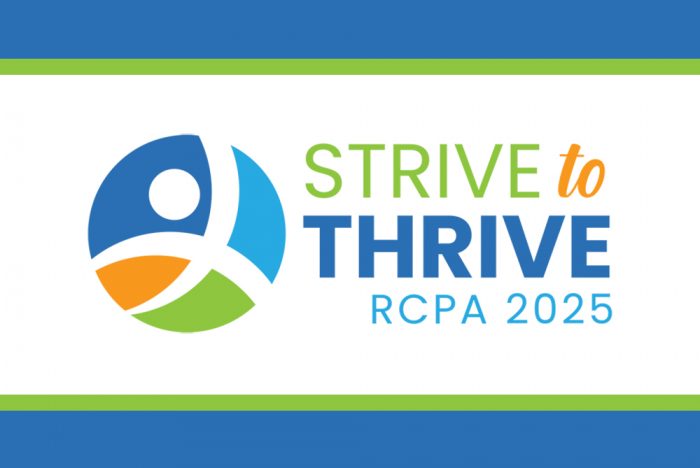Life Goes On: Why Pennsylvania Lawmakers Are in No Hurry to Make a Budget Deal Nearly Two Months After the Deadline
Ease Your Burdens With Connected Compliance Solutions — Relias Webinar on August 28
Online Registration Closes Next Friday for the RCPA Conference Strive to Thrive!
Time is running out to register online for the RCPA 2025 Conference Strive to Thrive, so don’t wait any longer to reserve your seat, book your hotel room, and get ready to engage with leaders in the health and human services industry! Online registration officially closes next Friday, August 29, 2025. Register today — as an attendee, you can look forward to:
- State and Federal keynote and plenary speakers who are at the forefront of current provider trends, government policies, and workforce strategies;
- Over 60 workshops covering all divisions of health and human services;
- Over 110 hours of Continuing Education credits; and
- A great opportunity to meet sponsors and exhibitors to discuss the latest products and services.
View our Registration Brochure for complete details, including booking your hotel room, event highlights, and networking opportunities!
Online Registration Closes Next Friday!
Register Today!
RCPA Member Sarah A. Reed Children’s Center Shares Update on St. Ann’s Campus Enhancement Project
Last Call for the RCPA Fall Golf Outing on September 8!
Don’t miss your chance to golf with your colleagues for a good cause! RCPA will be hosting our Fall Golf Outing to support the RCPA PAC on Monday, September 8, 2025, in conjunction with the Annual Conference. Conference attendees, exhibitors, sponsors, and presenters can now register to participate in the RCPA PAC’s Golf Outing at the Colonial Golf & Tennis Club at 4901 Linglestown Road, Harrisburg, PA 17112. Registration and lunch will be held from 11:00 am – 12:00 pm, with the shotgun start beginning at 12:00 pm.
Sponsorships are available for this worthwhile cause. We hope you will consider becoming a golf outing sponsor; it is a great way for your organization to receive name recognition as well as an opportunity to support the RCPA fundraiser!![]()
Not a golfer but would still like to support the RCPA PAC? For your convenience, you can now make a personal online contribution, which will provide financial support to state legislators or representatives who have demonstrated a strong, consistent, and positive interest in our legislative priorities. If you are interested in learning more about the RCPA PAC or donating, please visit our website, download the PAC FAQ Card and Donation Card, or email Jack Phillips, Director of Government Affairs.
See you on the golf course! If you have any questions regarding registration, please contact Christine Tartaglione.
Advocate for Yourself at the National Council Hill Day; RCPA to Lead Pennsylvania Delegation
National Council’s Hill Day event will span two days, with a Public Policy Institute Program on October 7 at the Omni Shoreham Hotel, and meetings on Capitol Hill slated for October 8. This is a unique opportunity to connect with colleagues from across the country and share your important stories directly with the people who represent you in Washington, D.C.
Last year, RCPA members received the opportunity to learn and develop their lobbying skills through the Public Policy Institute sessions and put them to work meeting with Pennsylvania legislators in a series of meetings and roundtables. The experience was invaluable and created a pathway to advocating in their home districts and events like the RCPA Capital Day.
While Hill visits are open to all, space will limit the Public Policy Institute to 400 registrants.
As RCPA will once more serve as Team Captains for the Pennsylvania delegation, we ask that, when you register, you also contact RCPA COO Jim Sharp. RCPA will be coordinating and communicating with members as the event proceeds.
Register Here
Attendees are responsible for their own travel and lodging; however, hotel rooms can be booked through the Omni Shoreham Hotel at a discounted group rate once you have registered. Group transportation between the hotel and Capitol Hill will be offered at set times.
Note on potential shutdown: If Congress does not reach a spending agreement by September 30, there may be a government shutdown starting October 1. D.C. offices will remain open, however, and staff meetings can still occur. More updates will be provided if a shutdown appears likely.
More details will be forthcoming. We look forward to seeing you there!
Questions:
- Hill Day 2025 Website
- Public Policy Institute, Hill Meetings, or Legislative Asks: Email
- Logistics or Other Inquiries: Email

















